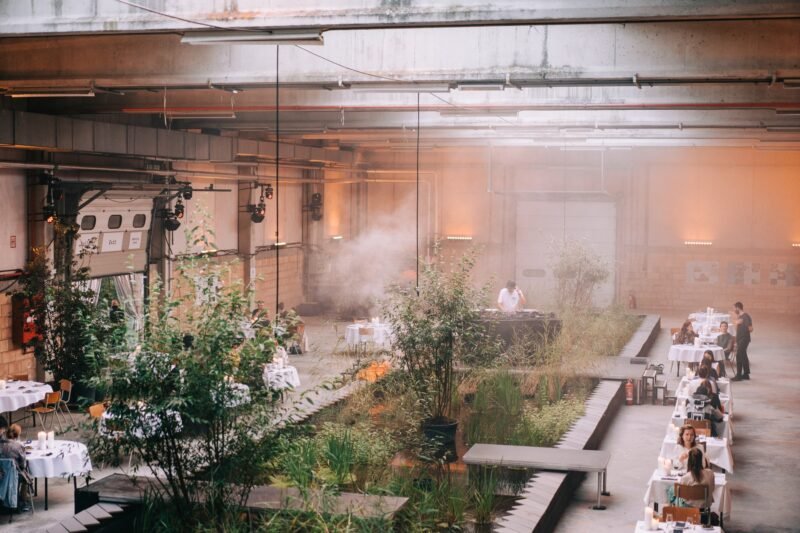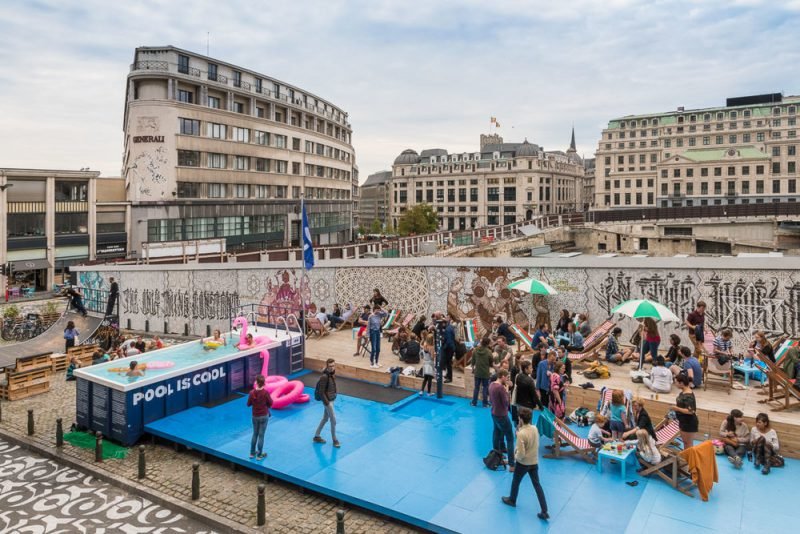The Temple Of Holy Shit
Collective Disaster has a new way to make money. Turning shit into something holier… soil. This magnificently green initiative is taking place in an unused urban space in Brussels, combining innovative business structures, social schemes, witty architecture and science.
The original concept stemmed from religious metaphor, seeing the transformation of secular miasma (body + bio waste) into a holy substance (terra-preta soil) which has life generating capabilities. It was renamed “Usine du Trésor Noir” (Factory of the the Black Gold) after causing contention in local religious circles. The studio said, “it was worth sacrificing the initial concept into something that the community can more easily understand, because after all, the value of this work lies in its ability to communicate the concept of terra-preta and compost and its potentiality to create more sustainable mindsets, while, at the same time, offering a social space for the neighborhood.” Classy!
The process in a nutshell: Woody material sourced from surrounding areas along with waste donations from the local cacao factory is carbonised to produce charcoal. During community cooking events taking place at the temple, the charcoal will be burned and the dust is then added to bio waste, coming from public members using the on-site toilets. Their waste is then transported along a nifty, human powered rail track to the fermentation room. It remains there for a year and is later on moved to the humification space where, over a period of time, it becomes the magical, nutrient-charged, terra-preta soil.
Once this process is complete, the soil is fed back into the environment to grow plants and fruits which will be sold to the public, as well as being used to grow wheatgrass, which will be available at their juice bar in the form of wheatgrass juice.The temple is also a platform for social interaction; hosting environmental talks/workshops and the aforementioned cooking events, as well as being a playground for kids to use.
The blend of fresh ecological and social strategies has led the project to coming 2nd in the Blue Responsibility Award competition, a well deserved recognition.






